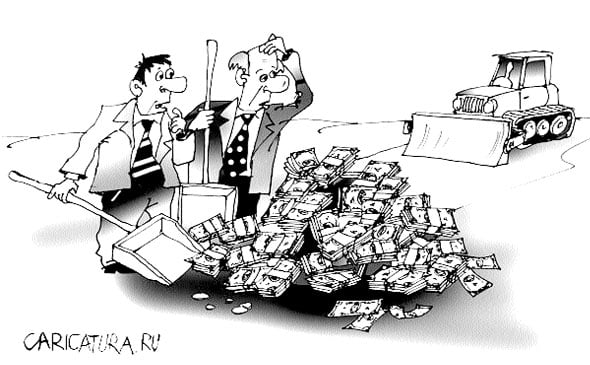This will not help you to save your souls.
At work, I often meet people who tell me what “important national works” they have done. Some of them are a bit strange people, who keep in their pockets the lengthy and rather worn out pages of their “treatise” “about saving the nation”. These people, indeed, need compassion, but usually they do not want us, the journalists, to help them within our profession, in other words, to prepare a publication about their “inventions” (and when we publish, usually they are unhappy, “why so short?”). These people as a rule want us to mediate before the “tops” so that they “over there” would pay attention to their activities. Actually, in this case, we take on the function of psychological assistance, these people just need someone to listen to them.
But what I mean to speak is not about this “contingent”, on the contrary, according to adopted notions, about the “successful” people, the well-known intellectuals, officials and oligarchs, who also like to boast by presenting their “national” deeds. Why should one be modest and speak less as much as possible and even think less about your own “heroic deeds” and “charities”? I am putting aside the case when it is a political PR or just a means of bribing the voters. Let’s consider a more complex and thus a more dangerous psychological mechanism of self-boasting.
We love to “award” us for our available or imaginary success and progress. If we spend two hours in the gym, then we often think that we can eat pastries after it. If we have worked all day long, then we think that you can light one or two cigarettes or waste hours on the web after it. If we successfully complete a project, it seems to us that we can go to an expensive store and waste our money there. In one case, deserving a high self-appraisal (even if it is earned), we relax our vigilance and believe that we deserve doing something for which we would give us a low appraisal in other circumstances. And we seem to justifying the second deed by the first one, but actually we at least neutralize the “good” with the “bad”. The cited cases are minor and everyday weaknesses, they are not major sins, but simply examples of psychological peculiarities of human.
Back to the wealthy and high-ranking officials who had “committed great national deeds” (they, as we know, are the same people in Armenia), imagine that they have achieved success by some honest or dishonest way, and as they think, they do good deeds. This in the case of voicing or keeping “in mind” is a very strong “justification” for an extreme immoral conduct, in the first place, avoiding paying taxes, bankrupting the minor owners and taking bribes. I’m not saying, of course, that good works should not be done, they should be much more than it is done, but we should not talk and think about it so that it does not become an justification for “evil deeds”.
What definitely should not be done is building new churches, which is the foundation of justifying the ostentation, false piety and major sins. (This is so in modern Armenia rather than “commonly”). The senior clergy intertwined with oligarchy also promoted to this parade of hypocrisy. The bigger and higher you “catch” your “charity” (and what could be higher than building the God’s house), the more are the excuses and “justifications” of committing abominable sins in the everyday life, “Do you know what national deeds I have done?” Figuratively saying, the one who builds one church considers also building 10 brothels quite justified.
The number of churches in Armenia, I think, is quite enough, it remains to give them a true content.
Aram ABRAHAMYAN
Aravot daily


















































